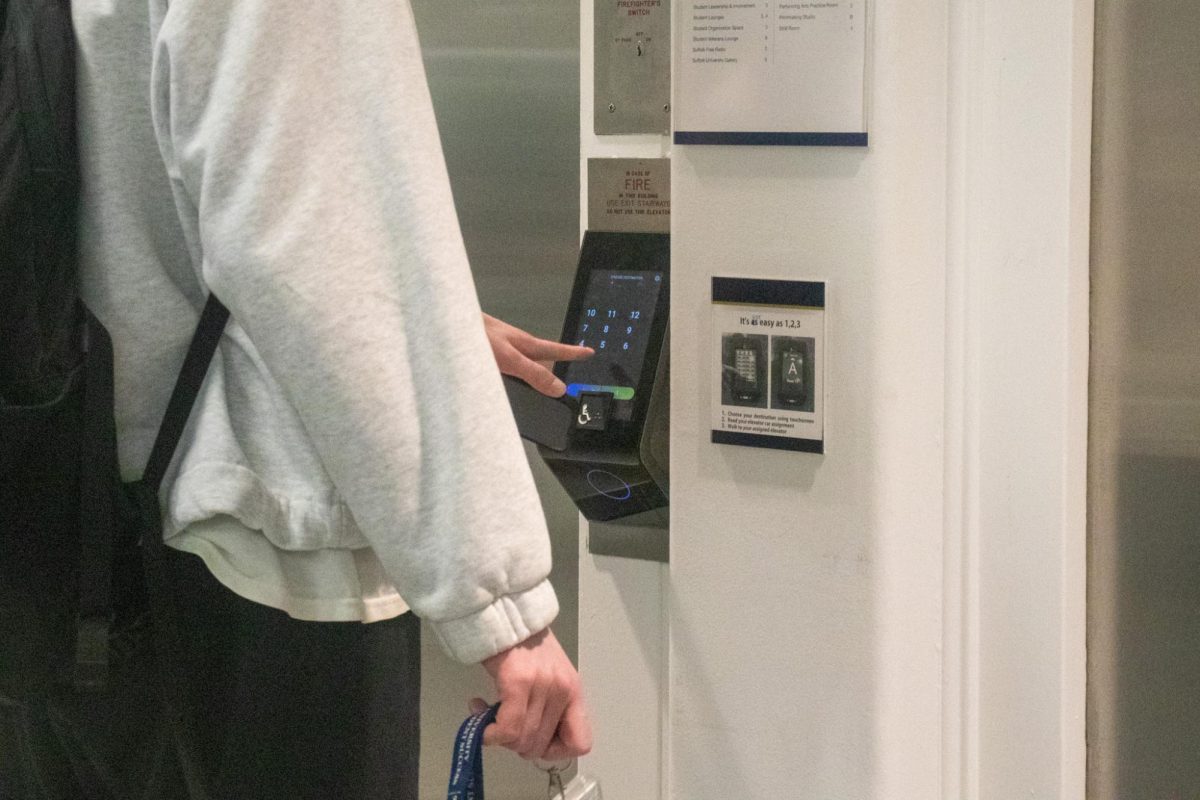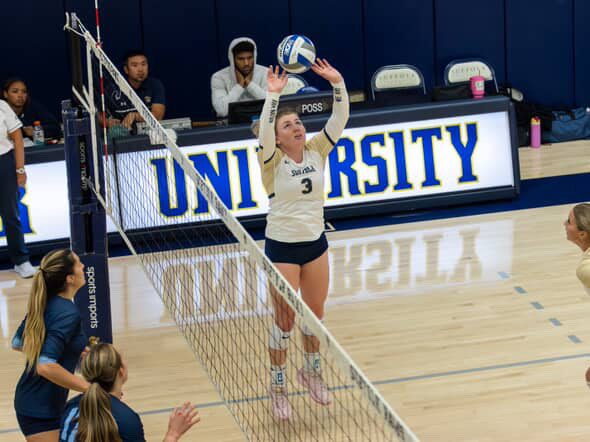Suffolk University’s Sawyer building saw the abrupt closure of all of its five elevators Sept. 6, which forced the university to relocate 16 classes that afternoon, and more later that weekend, as a result of an electrical issue that affected the control system.
Vice President of Administration Boris Lazic sent email updates to the Suffolk community over the course of the weekend. Lazic sent an email Sept. 8 that outlined steps Suffolk would take to address issues with the elevators in Sawyer.
“After much consideration, it has become clear that the best course of action to ensure sustained and reliable elevator service is to pursue long-term solutions rather than quick fixes,” Lazic wrote.
In this case that means elevator modernization, as a part of the University’s major capital investment on its elevators.
This isn’t the first time the Sawyer elevators had issues. Students have said the elevators’ frequent delays were “inconvenient” for years.
“It’s just so inconsistent,” said Joy Sulzinsky, “When you really need it, you have to wait a while and keep clicking the button and it keeps rejecting you.”
Sulzinsky is a sophomore student worker in Sawyer and had a class in the building before it was moved to a meeting room in the Sargent Hall library.
Sulzinsky said there were times that meetings were scheduled to occur in the reassigned classroom at the same time as the class and the professor has had to address the issue with students.
University spokesman Greg Gatlin said in a statement to The Journal that Suffolk began work this summer on “a major capital investment,” approved in the spring, to make improvements to the elevators.
“We know that recent elevator service issues, particularly in the Sawyer building, created a challenging start to the semester, and those disruptions have been frustrating for many students, faculty and staff,” Gatlin said. “We are very grateful for the patience, understanding and cooperation of all our students, faculty and staff as we worked to address service issues, and as we continue to make improvements to our elevator operations.”
Gatlin said repairs and work to improve elevator service would continue throughout the academic year. There is no estimated cost at this time because the project is still in the beginning stages.
Suffolk’s investments leave some students feeling frustrated, questioning how their tuition dollars are being allocated.
“It’s better than that time they bought all the ad space in South Station, while the elevators were still broken,” Sulzinsky said.
Gatlin said that because Suffolk is a “vertical campus,” an expert consultant was brought in to inspect and proactively identify issues to be addressed in other campus elevators.




















